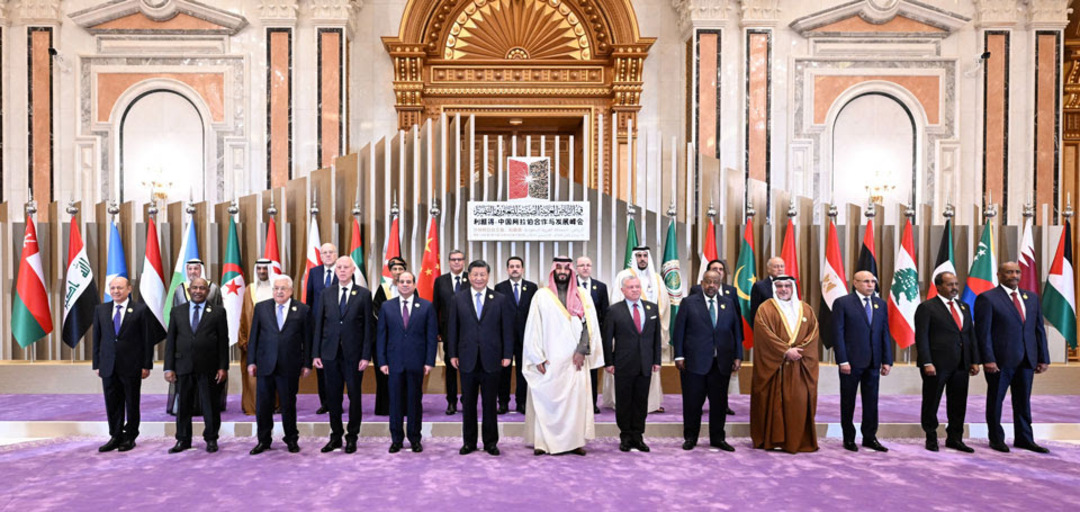-
Arab Countries and the BRICS Membership Dilemma: A Delicate Balance Between Investment and Consumption
-
For Arab countries to succeed in the BRICS group, they must adopt comprehensive development policies focusing on innovation and technology while maintaining their economic independence and avoiding th

The BRICS group is preparing to hold its upcoming summit in Kazan, the capital of Tatarstan, Russia, from October 22 to 24. This summit comes amid varying aspirations and hopes, both for founding countries and new members, as their membership is tied to diverse criteria and considerations.
The Kazan summit is the first after the group's second expansion phase, considering that the first phase saw South Africa join in April 2011.
It can be concluded that this phase might have been the last where expansion was linked to the basic criteria for joining, which is "achieving the highest economic growth rates" globally.
In the second phase, it's noted that many countries joined despite not achieving the required growth rates, indicating that political considerations overshadowed economic aspects. For example, Argentina's motivation to join - before recent changes in its orientations - was the desire to break free from dollar hegemony and American influence.
For Iran, security and political reasons intertwine. The former includes joint production of some weapons such as drones and missiles, while the latter represents a potential gateway for expanding Russian influence in the Middle East.
Regarding Egypt and Ethiopia, their motivations for joining are similar though not identical. Both suffer from financial and economic crises and seek to attract foreign investments to fund productive projects. However, Egypt's unique geographical location, along with its political and security stability, gives it a relative advantage in investment viability.
Egypt is well aware that Russian, Chinese, and some other markets are no longer promising for traditional products like vegetables and fruits. Recent reports from the Russian Federal Statistics Service indicate high levels of self-sufficiency in food security, reducing export opportunities for traditional agricultural products.
Russia has succeeded in achieving self-sufficiency in many agricultural, animal, and food sectors, including potatoes (101%), meat (101.7%), dairy products (84.3%), fish (102.9%), eggs (98.6%), vegetables (89.1%), and fruit (44.6%). It has also achieved impressive results in crops it previously didn't focus on, such as rice and cotton seeds.
These figures indicate that joining BRICS alone may not achieve the desired gains but could lead to significant losses for those who haven't enhanced their productive and export capabilities. Countries that don't keep pace with this development may turn into mere markets for other countries' products, potentially burdening them with debt and threatening their economic sovereignty.
Therefore, observers emphasize that Arab countries wishing to join BRICS must develop comprehensive economic strategies to enhance their competitiveness and diversify their economies while maintaining a delicate balance between attracting investments and protecting local industries. They must also focus on innovation and technology to ensure a strong position in this global economic bloc.
Levant - Agencies
You May Also Like
Popular Posts
Caricature
BENEFIT Sponsors BuildHer...
- April 23, 2025
BENEFIT, the Kingdom’s innovator and leading company in Fintech and electronic financial transactions service, has sponsored the BuildHer CityHack 2025 Hackathon, a two-day event spearheaded by the College of Engineering and Technology at the Royal University for Women (RUW).
Aimed at secondary school students, the event brought together a distinguished group of academic professionals and technology experts to mentor and inspire young participants.
More than 100 high school students from across the Kingdom of Bahrain took part in the hackathon, which featured an intensive programme of training workshops and hands-on sessions. These activities were tailored to enhance participants’ critical thinking, collaborative problem-solving, and team-building capabilities, while also encouraging the development of practical and sustainable solutions to contemporary challenges using modern technological tools.
BENEFIT’s Chief Executive Mr. Abdulwahed AlJanahi, commented: “Our support for this educational hackathon reflects our long-term strategic vision to nurture the talents of emerging national youth and empower the next generation of accomplished female leaders in technology. By fostering creativity and innovation, we aim to contribute meaningfully to Bahrain’s comprehensive development goals and align with the aspirations outlined in the Kingdom’s Vision 2030—an ambition in which BENEFIT plays a central role.”
Professor Riyadh Yousif Hamzah, President of the Royal University for Women, commented: “This initiative reflects our commitment to advancing women in STEM fields. We're cultivating a generation of creative, solution-driven female leaders who will drive national development. Our partnership with BENEFIT exemplifies the powerful synergy between academia and private sector in supporting educational innovation.”
Hanan Abdulla Hasan, Senior Manager, PR & Communication at BENEFIT, said: “We are honoured to collaborate with RUW in supporting this remarkable technology-focused event. It highlights our commitment to social responsibility, and our ongoing efforts to enhance the digital and innovation capabilities of young Bahraini women and foster their ability to harness technological tools in the service of a smarter, more sustainable future.”
For his part, Dr. Humam ElAgha, Acting Dean of the College of Engineering and Technology at the University, said: “BuildHer CityHack 2025 embodies our hands-on approach to education. By tackling real-world problems through creative thinking and sustainable solutions, we're preparing women to thrive in the knowledge economy – a cornerstone of the University's vision.”
opinion
Report
ads
Newsletter
Subscribe to our mailing list to get the new updates!






















